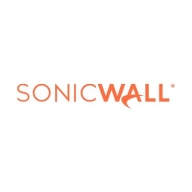

Fortinet FortiGate and SonicWall Cloud Secure Edge are in the cybersecurity solutions category. Fortinet FortiGate generally holds an advantage due to its comprehensive security features.
Features: Fortinet FortiGate includes advanced threat intelligence, broad security services, and robust data-driven insights. SonicWall Cloud Secure Edge is favored for its cloud-native architecture, flexibility, and seamless integration with cloud services. The primary difference lies in Fortinet’s emphasis on security breadth and SonicWall’s focus on cloud capabilities.
Ease of Deployment and Customer Service: SonicWall Cloud Secure Edge offers a cloud-based deployment model that simplifies installation, appealing for organizations needing quick and efficient implementation. Fortinet FortiGate may require a more involved setup process due to its extensive features but provides robust support to assist with deployment. The distinction is based on SonicWall’s streamlined cloud setup versus Fortinet’s potentially complex yet well-supported deployment.
Pricing and ROI: Fortinet FortiGate involves a higher initial setup cost but offers significant ROI due to its extensive security features and scalability. SonicWall Cloud Secure Edge presents a more cost-effective initial setup, appealing to businesses with budget constraints, while still providing solid security returns. The difference primarily revolves around Fortinet’s higher upfront investment with greater long-term value compared to SonicWall’s cost-effective start with steady returns.
| Product | Market Share (%) |
|---|---|
| Fortinet FortiGate | 8.6% |
| SonicWall Cloud Secure Edge (CSE) | 4.2% |
| Other | 87.2% |

| Company Size | Count |
|---|---|
| Small Business | 350 |
| Midsize Enterprise | 130 |
| Large Enterprise | 187 |
Fortinet FortiGate excels in providing integrated VPN, firewalling, and Unified Threat Management (UTM) with centralized management and high availability. It supports remote access and comprehensive threat protection, making it a preferred choice for securing networks.
Fortinet FortiGate offers a robust security platform with features such as strong intrusion prevention, application control, and web filtering. Its integration with Active Directory and SD-WAN functionality provides scalable solutions for large networks. Users appreciate its ease of use through centralized management interfaces, ensuring robust security with flexible configurations. However, FortiGate could enhance its graphical interface and technical support responsiveness, address firmware bugs and costly licensing, improve logging, integrate better with third-party tools, and strengthen scalability and memory for log storage. Complexity in configuration and the need for intuitive features are noted challenges, and there's a demand for advanced security, zero-trust capabilities, and AI integration.
What are the key features of Fortinet FortiGate?Fortinet FortiGate is widely implemented across industries like education, finance, and government. Companies use it for firewall protection, VPN, and SD-WAN capabilities, ensuring secure perimeter and data center security. It facilitates remote access management and traffic routing optimization, offering reliable security and connectivity solutions.
SonicWall Cloud Secure Edge (CSE), formerly Banyan Security, easy to adopt Security Service Edge (SSE) solution, enabling your workforce to securely access any resource from any device. It delivers simple, secure, zero trust access to private and internet resources for all your employees and third parties, regardless of their network location. To accomplish that, CSE combines the functionality of multiple traditional network appliances – remote access VPN, web proxy, firewall, etc. – into a unified cloud-delivered solution, improving the security posture and user experience for the entire workforce.
We monitor all ZTNA reviews to prevent fraudulent reviews and keep review quality high. We do not post reviews by company employees or direct competitors. We validate each review for authenticity via cross-reference with LinkedIn, and personal follow-up with the reviewer when necessary.